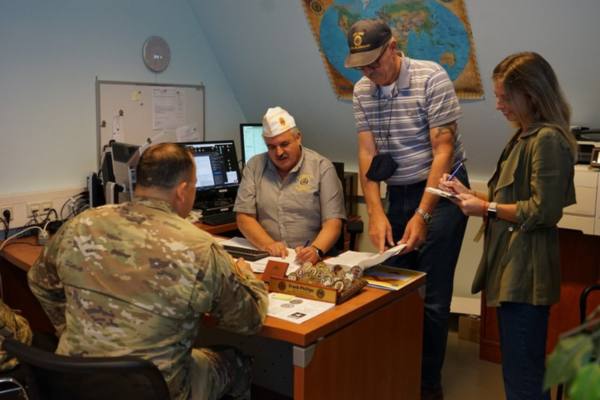From duty to legacy: Strengthening military identity in civilian life
By Maj. Alisia Mahatoo, Army Reserve Retirement Services July 2025
For many Reserve Soldiers, retirement signifies the end of a part-time military career, resulting in a profound transformation in identity, shaped by years of duty, discipline, and dual service. Instilled attributes such as discipline, camaraderie, and a strong sense of purpose that define military service does not vanish the moment the uniform is folded away, they remain shaping the civilian chapter that follows. Staying connected to military roots can provide a sense of belonging, purpose, and continuity. This transformation is an enormous adjustment that can come with its own set of challenges, opportunities, and moments of reflection.
Reserve Soldiers continuously balanced the demands of military duties alongside civilian careers, forging an identity that blended both worlds. As retirement brings that chapter to a close, the sudden loss of that familiar structure can create a sense of uncertainty and even displacement. However, a smooth transition is not only possible, but also a chance to continue honoring and embracing your military identity in new and meaningful ways.
Veteran groups offer the opportunity for Retired Soldiers to maintain a strong connection to military culture by remaining engaged with organizations such as the American Legion, Veterans of Foreign Wars (VFW), and the Reserve Officers Association (ROA). These community partners provide networking opportunities and programs, and support specifically tailored to Reserve Retired Soldiers. The desire to reinforce your military identity even after service can be accomplished through communities that offer ways to participate in advocacy, mentorship, and social events. Additionally, the opportunity to support volunteer efforts geared toward military causes can provide Retired Soldiers with a sense of deep fulfillment, whether it’s mentoring ROTC cadets, aiding disaster response efforts or assisting with veteran support programs. Giving back in these ways enables continued service and can leave a meaningful impact. Additionally, digital spaces such as social media groups, veteran-focused forums, and veteran-focused websites provide avenues for connection, which facilitates discussions, sharing of resources, and reconnecting with former colleagues beyond physical events.
Retirement can be dauting, since it marks the end of one pivotal point in life and requires evolving in a way that integrates both the civilian and military aspects of your identity. During this transition, by providing mentorship, remaining active within veteran communities, or by honoring the traditions that shaped you, you can transition into this new chapter with pride and purpose. Ultimately, the strength of one’s military identity does not solely rest with wearing the uniform but encompasses the enduring values, camaraderie, and discipline learned, that continue long after this chapter of life ends.
Organizations like the American Legion champion veteran support, military policies, and lifelong camaraderie among former service members. The VFW focuses on empowering combat veterans through benefits access, community service opportunities and legislative action.
Specifically designed for reserve officers, the ROA provides career support, leadership development, and policy engagement tailored to reserve components.
For ongoing inspiration and resources, the Soldier for Life Podcast shares stories and tools to help you thrive in post-service life. Check out Episode 9 in Season 15, titled 'Why you should tell your SFL story.'
Additionally, these organizations provide ways to remain connected to these communities, whether you’re seeking mentorship, volunteer opportunities, or just a place to share your stories and experiences. It gives you the opportunity to continue serving in impactful ways, preparing you for transition into retirement while preserving your military identity.

